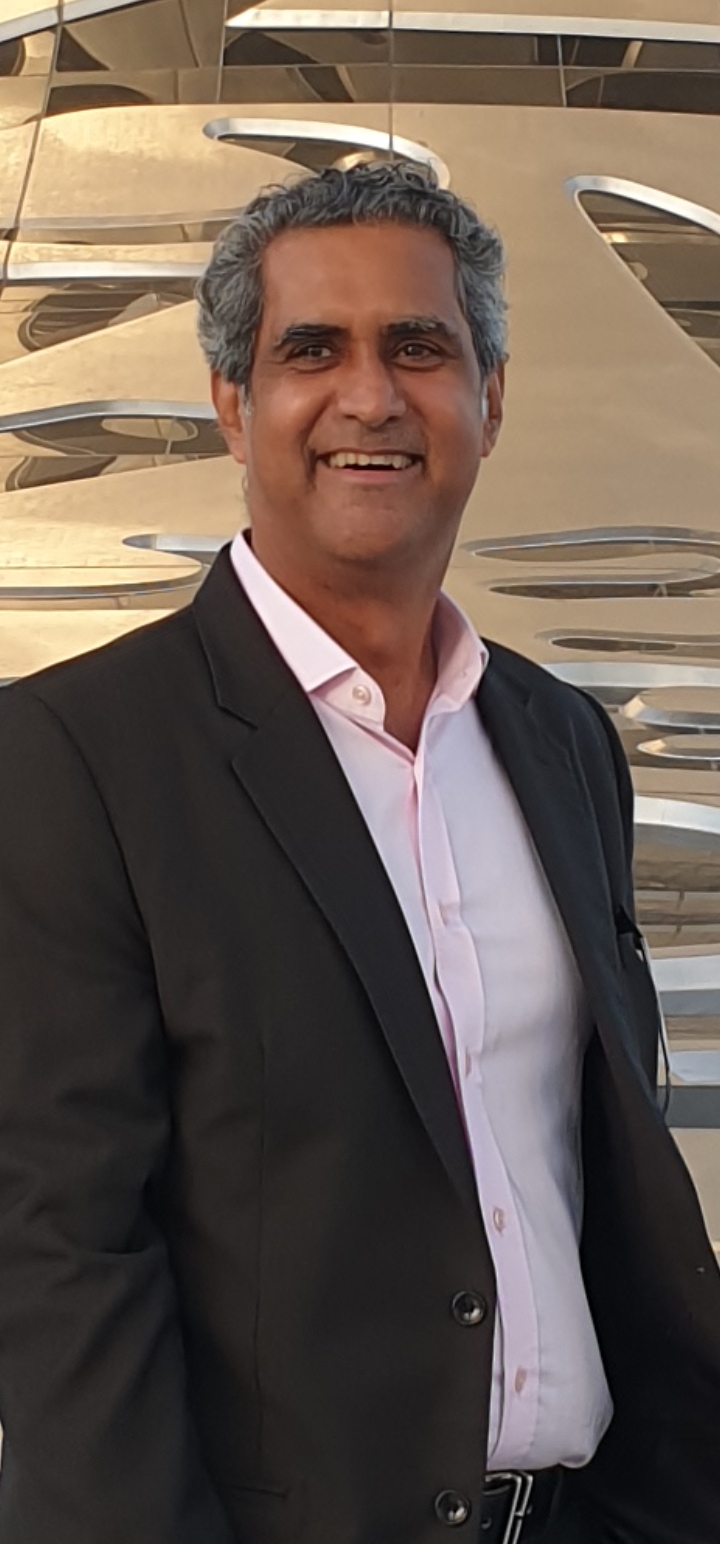A dynamic and engaging environment

Raju Shroff is the Managing Director of the Regal Group in Dubai. Founded in 1952, it has grown to become one of the region's most successful textile companies diversifying along the way to sports, technology, investments, industry and real estate. Here, he talks to CampdenFB about the shift from first to second generation, the challenges facing the family office now, and his approach to philanthropy.

How was the Regal Group founded?
Raju Shroff: The company was officially established in 1952, but its roots go back further. My grandfather came here from what was then a divided India, arriving in the 1940s, long before the UAE existed as a country. The UAE wasn’t formed until 1971. The company was formally registered in the early 1950s, and over time, more family members followed. First, my uncle joined, and then my father came to work alongside his elder brother. Now, as part of the third generation, I’ve joined them in continuing the family legacy.
What prompted the move?
Raju Shroff: At the time, I was still in school, and I’d go to the office after classes. Computers had just been introduced, and I started experimenting with them. I enjoyed working with technology, converting some of the company’s files. I began with a Commodore 64, playing computer games, but I quickly grew bored of that and started thinking about how I could use computers for business. I was studying accounting and economics in school in Dubai, and I asked myself: “Can I use these programs to modernise our manual systems?” There were early database programs like PFS and similar tools for organising data that fascinated me.
That motivated me to join the family business straight away. It wasn’t something my family pushed me into; it was my initiative. I enjoyed it so much that I decided to dive into business immediately and delay my college education. I eventually completed the OPM program at Harvard Business School and earned my Masters from London Business School in the UK. I just postponed my education until it felt like the right time.
The Regal group is still well known for textiles, but you’ve diversified into so many different fields. Why did you diversify?
Raju Shroff: When I first joined the family business, we were focused solely on textiles, but I soon realised I needed to carve out my own path. I wanted to create my own legacy. Around that time, I had the opportunity to start Regal Technologies. There was a wave of new ideas emerging, and satellite TV was just starting to make its mark. It was an entirely new concept – no one really knew about it yet.
A friend of mine, who was an engineer, and I started experimenting with it. While he had the technical expertise, I approached it from a business angle. In 1984, I installed a satellite dish at home, and by 1987, during the Cricket World Cup, mine was the only place in the Middle East where people could watch the matches. Around 100 people crammed into my house just to watch the games. A friend who owned a hotel asked if I could move the setup to his hotel. I couldn’t, but I suggested we get another dish, and we could share the gate receipts. He agreed, and that was how Regal Technologies was born.
My father invested in the company, and I was able to pay him back in just six months because the business was doing so well. We were the only ones in the market, and we quickly scaled up, eventually expanding Regal Technologies into a full-fledged company specialising in satellite TV.
Eventually, as the satellite TV market began to change and large 16-foot dishes became obsolete, my brother joined the company. I suggested that he take over the satellite business, while I shift my focus to real estate.
The decision to diversify wasn’t about spreading into unrelated areas – it was about finding ways to make my mark. I didn’t just want to continue doing what my family had been doing for years; I wanted to prove my worth by creating something different.
How did you avoid the familiar tensions in family businesses when you tried to do something completely different?
Raju Shroff: My father is one of those exceptional people who, from a very young age, never said “no” to me. He had a remarkable sense of trust in my decisions. He made sure I understood the risks involved, but he never held me back. He’d say, ‘It’s better to take risks while I’m still around because if you lose a few thousand, I can help you. But if I’m not there and you lose millions, who will guide you then?’ That was such an important lesson for me.
Under his supervision, I learned to dabble in new ventures carefully and thoughtfully. It wasn’t about making money from every project or business we took on, but because we moved slowly and steadily, we were able to mitigate the risks. His guidance helped me learn how to approach business with patience and a long-term vision.”
Why have you stayed in Dubai? Did you ever feel the drive to move back?
Raju Shroff: India was never a place I considered going back to, because our entire family has been here in Dubai since 1952. Everyone – cousins, aunts, uncles – is based here. Although we went to India for schooling and to gain experiences outside of Dubai, the city has always been such an easy place to do business. Even 20 or 30 years ago, Dubai was a dynamic place. While it was small on the global stage, it was already growing. The government and leadership here have always been progressive and very supportive of trade. They understand business and are always willing to help entrepreneurs move forward.
Even though we pursued education abroad, I encouraged my brother to explore setting up elsewhere after he graduated. I wanted to diversify the family’s risk by not being concentrated in just one country. He travelled to some of the world’s major cities – Singapore, Tokyo, the US, the UK, and Geneva – before returning with a report. Together with our father, we studied the possibilities. Although there is a geopolitical risk here, everything else worked in Dubai’s favour: no taxes, ease of doing business, established networks with lawyers and bankers, and opportunities in growing markets around us, like the Middle East, Africa, and India. After considering everything, including the risks, we decided to stay in Dubai, and both of us have continued to build the family business here.
How are you trying to get your family to continue down the generations?
Raju Shroff: I’ve always believed that every child or person who joins the family business has their own strengths and passions. When my son expressed an interest in music, I fully supported him. He enjoyed music so much that he wanted to go to college to study it. I didn’t want to stand in his way, so I told him to pursue his passion, but with one condition: I wanted him to attend a school where he could study music, but also take a couple of semesters in finance and accounting. I felt it was important for him to understand the basics of business and money management.
He did go to a school focused on music, but the family business influence was always within him. After a few years, he realised that his true calling was in business, and that’s where he ended up. You have to let children follow their own path and make their own decisions.
You and your father built the first Hindu temple in Dubai. Could you talk to me, a bit about your approach to philanthropy?
Raju Shroff: Our family has always had a strong sense of community and a desire to give back. More than 50 years ago, my father and his brother spearheaded several initiatives. In 1958, they, along with a group of people, established the first temple in Dubai. They also founded the Indian High School, the India Club, which served as a social hub, and the first textile committee to help resolve industry disputes within the community. My father has always believed in helping people through local resources rather than sending them elsewhere.
I consider myself fortunate to have grown up in this environment, and I naturally followed in their footsteps. After joining the family business, I also became involved in these community initiatives. I served as Vice Treasurer of the Indian High School and Vice Chairman of the India Club.
In 2019, we were working on securing a larger plot of land to expand the temple, and that’s when I was entrusted with overseeing the construction of a new temple in Dubai. Given my experience in construction, the family gave me the go-ahead to lead the project. Despite the challenges brought on by COVID, the government of Dubai was incredibly supportive. We held all our meetings over Zoom, and I coordinated everything remotely. We managed to complete the temple during the pandemic, and now, two years later, we have one of the largest temples in Dubai, run entirely by the community. I’m honoured to serve as one of the trustees.
What are the challenges facing your family office now? What are the issues that keep you awake at night?
Raju Shroff: One of the challenges in family businesses is balancing tradition with the desires of younger generations. While we hope our children understand the importance of legacy and continuation, we must also give them the freedom to explore their own interests and passions.
My children have taken different paths. My son initially joined the family business but later decided to pursue his own ventures. My daughter is now interested in joining the family business. My primary concern is to integrate them into the business in a meaningful way, without resorting to nepotism.
I believe it’s essential to find roles that align with their interests and skills, rather than forcing them into traditional family business roles. This might mean exploring new business opportunities or adopting modern technologies. The goal is to create a dynamic and engaging environment that inspires them to take ownership and continue the family legacy.






